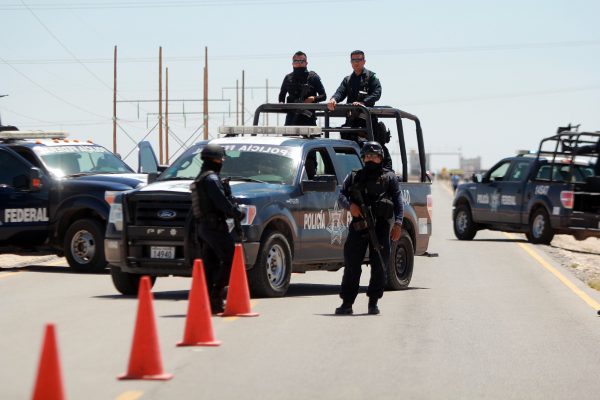CNN legal analyst Danny Ceballos writes that there is more than meets the eye in the case of Joaquin “El Chapo” Guzman’s extradition to the U.S.
A Mexican federal court on Monday May 9 appeared to grant permission to extradite Guzman, an alleged head of the Sinaloa Cartel, from Mexico to the United States. In addition, Mexican authorities have transferred Guzman from a maximum-security facility in central Mexico to a prison in Ciudad Juarez, right across the border from the United States.
So we shouldn’t be that surprised that El Chapo and his legal team have contributed to the delay in extradition by filing amparo suits and other challenges in Mexican courts.
What’s an amparo suit? It’s an interesting legal creature, in Mexico, which has an equally interesting legal system. Amparo is a kind of appeal used in Mexican federal court to assert individual rights, as well as review the validity of judicial decisions and laws. It’s similar in theory to the habeas corpus petition in the States. In practice, it’s been called a “get-out-of-jail-free card.” Its protections, ordinarily unavailable to other civilians, have been extended to drug traffickers and members of the criminal underworld.

(AP Photo/Raymundo Ruiz) Mexican federal police officers guarding a road leading to the Cefereso No. 9 federal prison in Ciudad Juarez, Mexico, on Saturday May 7. Guzmán was abruptly transferred to the prison in northern Mexico near the Texas border.
In the United States, criminal defendants are presumed innocent and have the protections of procedural due process. In Mexico, accused persons are presumed guilty, unless and until they are proven innocent. Moreover, it’s really only poor defendants who are presumed guilty. The well-heeled in Mexico have the “plata” to file amparo suits.
With the power of the amparo to challenge Guzman’s detention, extradition to the United States is not a sure thing, even after the judge’s decision on Monday.
You don’t need to be a betting type to predict this: Guzman will end up in prison if he stands trial in the United States. Well over 90% of federal prosecutions end in convictions. When the U.S. Attorney’s Office decides to make a case, it stays made. Plus, it’s no secret that the DOJ views this case as the World Cup of cases, so it will bring its “A” game for sure.
So what’s Guzman’s real strategy? It could be this: On the U.S. side, his team negotiates early on with the U.S. Attorney’s Office. Remember, as the highest ranking drug trafficker ever arrested, he has a treasure trove of valuable intel for law enforcement. In the event he is extradited, he’s created a valuable paper trail of cooperation. Meanwhile, back in Mexico, he simultaneously attempts a Hail Mary pass. If the amparo or other challenges are successful, he could stay in Mexico. Staying in Mexico could mean freedom — legal or illegal. If that’s the plan, it brilliantly hedges his bets on both sides.
What should we, the people, of the United States want to happen? On one hand, sending El Chapo to a Supermax prison would achieve banishing him to oblivion. More people have escaped from the Château d’If or the Phantom Zone than a Supermax.
On the other hand — “por otro lado” — consider some reasons why we might prefer Guzman to stay in Mexico. First, there’s already speculation as to who will succeed Guzman at the helm of his empire. Can you really neutralize a drug trafficking organization by removing the head? Or like the mythical Hydra, will another head sprout to take its place?
Second, extradition law is “law” in name only. According to its extradition treaty with the United States, Mexico may be obligated to extradite El Chapo, but there’s not too much in the law of either country about what happens if Mexico simply refuses to do so. Extradition law really boils down to what the more powerful of the two countries feels like doing at that particular moment.
Third, and admittedly, this is coming from a criminal defense attorney, the United States’ extraterritorial criminal jurisdiction is steadily expanding over persons and acts committed abroad. It’s a power that should be used responsibly, and sparingly. For one, we have plenty of federal crimes right back here in the United States. And, at some point, prosecuting activities abroad can evolve into a kind of imperialism. The ends don’t always justify the means.
By Danny Cevallos for CNN
Danny Cevallos (@CevallosLaw) is a CNN Legal Analyst and a personal injury and criminal defense attorney practicing in Pennsylvania and the U.S. Virgin Islands, and is admitted to the federal District Court of Puerto Rico. The opinions expressed in this commentary are his.
Source: edition.cnn.com



